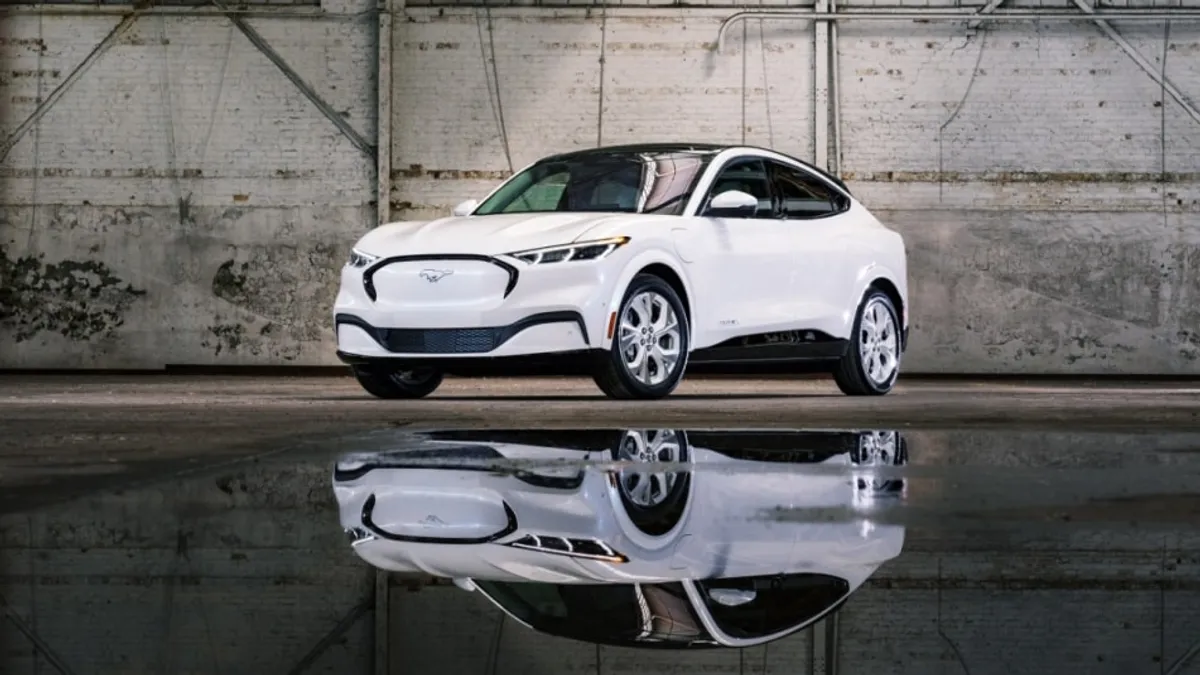Dive Brief:
- Ford has secured several new raw material suppliers for its electric vehicle batteries as the automaker warns limited supply could hinder its EV ambitions.
- The company has signed agreements with suppliers around the globe for lithium, as well as graphite, cobalt and nickel. Ford has also signed new or expanded deals with mining, processing and manufacturing companies across North America, Asia and South America.
- CEO James Farley noted during an earnings call last Wednesday that prioritizing battery raw materials is crucial as demand for EVs is expected to eventually outstrip raw material supply. “At best, 50% of all raw materials required to meet the combined announced targets for all EV OEMs is actually available.”
Dive Insight:
Ford is signing new deals as it pushes to secure the necessary mix of raw material chemicals to power its growing production targets. The company hopes to reach a global annual production rate of 600,000 EVs by the end of next year.
As part of the plan to meet that goal, Ford is diversifying its suppliers and procuring more diverse mix of materials to fortify its battery supply.
The automaker announced a deal with energy storage company Contemporary Amperex Technology last month to secure supply of lithium iron phosphate battery packs. Ford is adding the lithium battery mix to its portfolio; the company has previously relied on nickel cobalt manganese-based batteries.
The carmaker’s plans are part of a growing push from automakers to forge new raw material procurement strategies as global EV demand skyrockets and mineral supply wears thin. Auto executives have been worried about lithium and nickel supply for months, and now experts have added graphite to their list of concerns.
EV manufacturer Stellantis announced in its recent earnings call that it had increased its shareholding in lithium supplier Vulcan, while long-time Ford competitor GM has signed three new supplier agreements to bolster its EV needs.
The focus on supplier security and diversity underscores the growing concern in the industry that EV battery supply does not match demand.
"This is why speed to securing supply is so critical and strategic,” Farley said during the earnings call, “So is diversifying our battery chemistries to increase our flexibility, supply and profit and to support different customer use cases."














